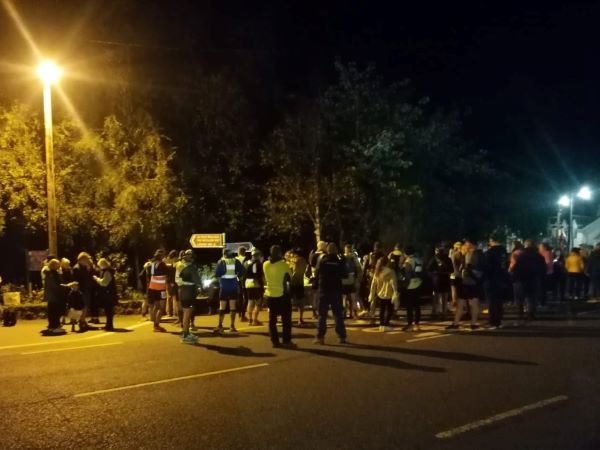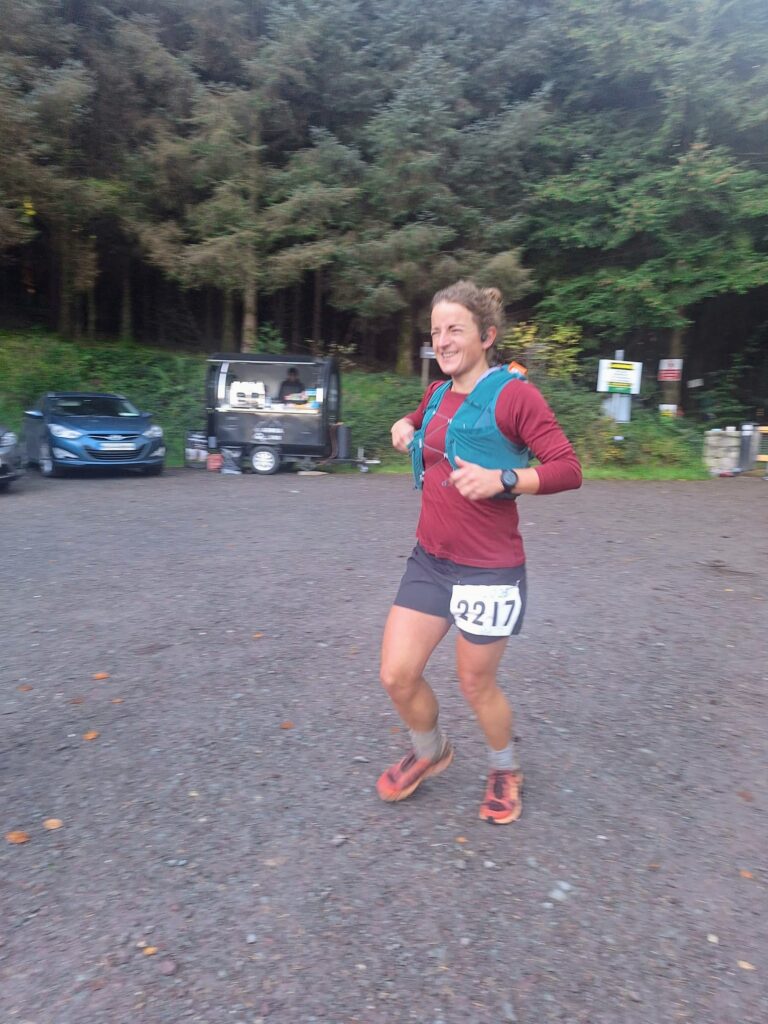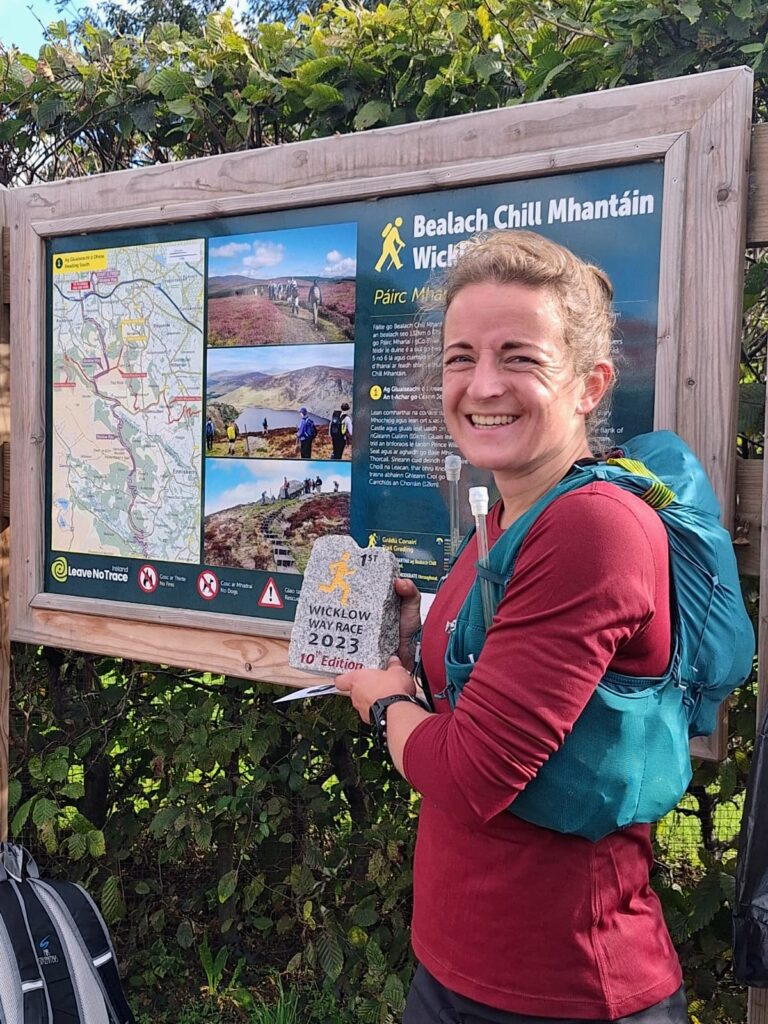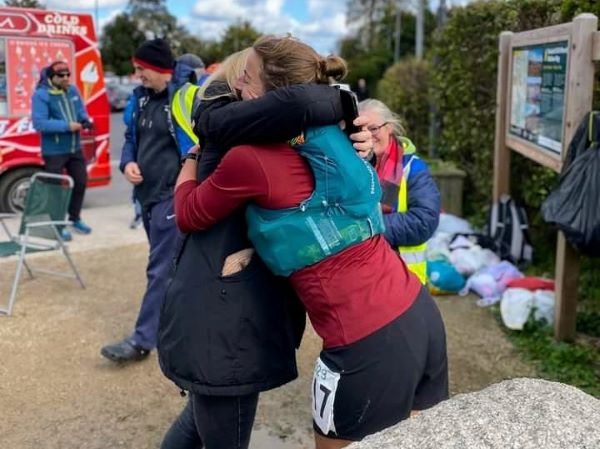2 am, middle of the woods, somewhere in Wicklow. A man has just passed me, shining around with his headtorch and asking me if I’m looking for something. I probably should have just told him that it’s my sanity that I’m looking for. Who signs up for a night race after dropping out of two races due to… not being able to run in the dark?
Putting in the work had a whole new meaning in the weeks leading up to the Wicklow Way Race. A couple of times a week I would wait until after sunset and head out for a run with the sole purpose of… running in the dark. Distance? Irrelevant. Pace? Irrelevant. Heart rate? Sort of relevant. Breathing? Extremely relevant.

To Run Far
The reason why I couldn’t finish my previous two races wasn’t because I was actually worried that the same guy from Slovenia would be hiding in the bushes somewhere. I also wasn’t worried about another random person trying to harm me. My body would just go into a state of panic as soon as it would get dark, something I had tried to either push through or ignore and deny.
Somehow I’d been fine during the Beara Way Ultra earlier in the year; I didn’t even know this would become an issue. Maybe it was because by the time it got dark in Beara, the field was so spread out that the nearest people were over 30 minutes away. Maybe it was because I knew the other runners I was racing with or maybe I was just in a much better headspace going into that race.
Whatever it was, I wanted to experience that again. I wanted to be able to run through the night again. Not because I enjoy the dark that much – I never have – but because it’s something you need to be able to do if you want to run 100 mile races. And that’s just what I happen to love: to run far.

Breathe
I didn’t necessarily enjoy my nightly training sessions, but they proved to be really effective. First of all, it teaches your brain that night running is a safe and normal thing to do. Switching on your headtorch shouldn’t be a sign that something bad is about to happen, it should just be a sign that you’re about to go for a run. Nothing more, nothing less. Secondly, it helped me find some tools that proved to be helpful in a race environment as well. That’s where the breathing became so important. And that’s where the man who passed me in Wicklow wondered what on earth I was doing.
It sounds so simple: just breathe. Apart from moving your legs, eating and drinking, it’s one of the basic things you can’t go without when you’re running. For me it was the first thing to go out the window though, as soon as my body would go into fight-or-flight. I wouldn’t be able to breathe, wouldn’t get enough oxygen into my system and would still try to keep moving. A recipe for disaster.
As I started doing more training runs in the dark, I learnt to recognise the pattern and just stop whenever I could feel that same response coming up.
Stop. Count to five. Take deep breaths.
I needed it less and less as I spent more time running in the dark, but I knew it was there if necessary. Stop, count, breathe. Very simple, not easy – especially for someone who likes to just keep going.

Puzzle Pieces
Over the course of that night in Wicklow, I stopped a few times to just stand there and breathe. If someone would pass me, I would tell them that I was fine. Because I was. Sarah, 5-star first-time crewer, had seen me in Kerry. She’d seen the low – and I was delighted to now celebrate the other side with her.
As soon as the night was over halfway, I started telling her and the other people I’d meet on the course that it was about to get bright. One man looked at the sky at what must have been 3 or 4 in the morning. He didn’t seem too sure… but I was. It was only a couple more hours of darkness, and I knew I was going to make it to daylight and to the finish line.
Winning races is great. Overcoming obstacles like this is much more meaningful, though. It looks like I’ll be able to finish long races again. Will it be like it was before? Probably not. I won’t take it for granted again, anyway – but I’ll definitely enjoy it. Everybody has their own challenges in ultrarunning. For some it’s their feet, their nutrition or their legs. For others it’s their head. It’s a puzzle – and we’re all just figuring it out at our own pace.

Interested in working towards your own goals and could use some help? Check out my coaching page and feel free to email/DM me.

